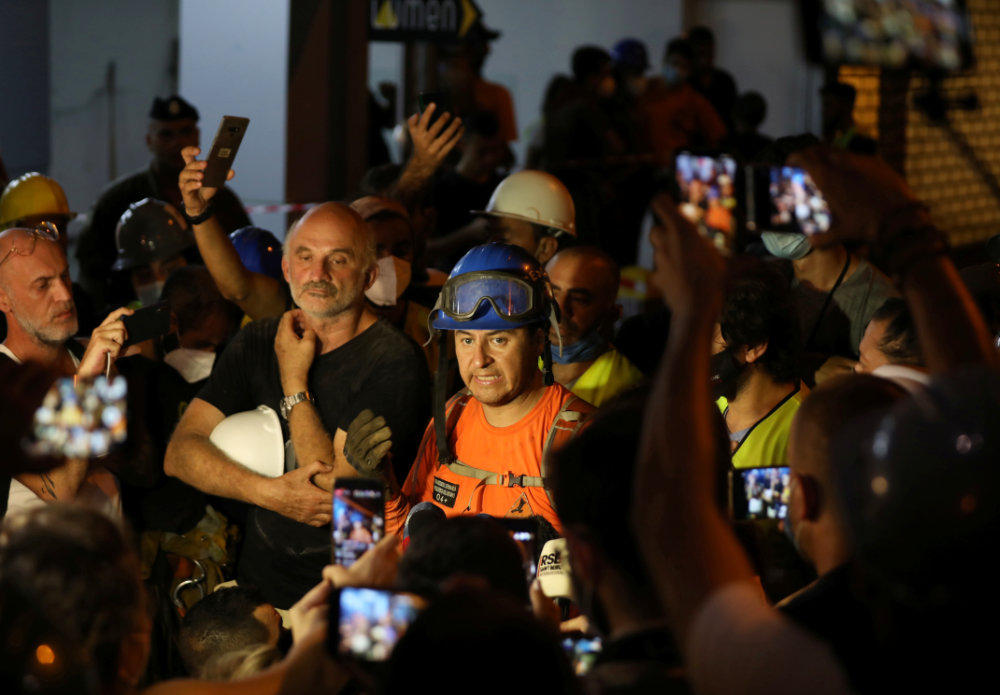’No sign of life’ in search for Beirut blast survivor
BEIRUT: Rescue workers said Saturday there was no longer any sign of life in a collapsed Beirut building, dashing hopes raised by sensor readings showing a pulse beneath the rubble from last month’s blast.
The cataclysmic August 4 explosion in the port of Beirut killed at least 191 people, making it Lebanon’s deadliest peacetime disaster. One month on, seven people are still listed as missing
On Wednesday night, a sniffer dog deployed by Chilean rescuers detected a scent beneath a collapsed building in the heavily damaged Gemmayzeh neighborhood adjacent to the port.
High-tech sensors confirmed an apparent heartbeat and rescue teams took up the search.
But after three days’ work removing piles of masonry, Chilean rescue specialist Francesco Lermanda late Saturday said there was no longer any sign of life under the rubble.
“Sadly today we can say that technically we have no sign of life inside the building,” he told the media.
Two female rescue workers on Saturday slipped through a final tunnel to check for any victim in the last air pocket where there could possibly be but found nobody there, he said.
Work would however continue to make the zone secure and ensure there was no possibility of any victim being left inside, Lermanda said.
In the afternoon, engineer Riyadh Assad had said the workers had cleared two layers of rubble and reached a stairway, where they found no one.
The civil defense agency’s operations director, George Abou Moussa, in the morning said the chances of finding someone alive were “very low.”
But civil defense officer Qassem Khater said his team was determined not to give up.
“We are not leaving the site until we’ve finished going through the rubble, even if a new building collapse threatens,” he said.
Chilean specialist Walter Munoz in the morning had put the chances of finding a survivor at “two percent.”
Lebanese officials had played down the chances of anyone surviving so long beneath the rubble.
But even the faint hope of a miracle caught the imagination of a country already reeling from the coronavirus pandemic and the country’s worst economic crisis in decades.
“I was not aware I needed a miracle that much. Please God, give Beirut this miracle it deserves,” said Selim Mourad, a 32-year-old film-maker.
Lebanon lacks the tools and expertise to handle advanced search and rescue operations, so they have been supported by experts from Chile, France and the Unites States.
The Chileans, in particular, have been praised as heroes by many Lebanese on social media, who have compared their expertise with the lackluster performance of what they see as their own absent state.
The country observed a minute’s silence for the dead on Friday.






